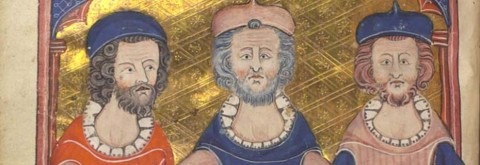This week, Salman Khan returned to his alma mater, MIT, to deliver the commencement speech to the 2012 graduates. As you know, MIT helped spark the open education movement when it launched its OpenCourseWare site in 2002. A decade later, the university has placed materials for 2100 courses online (find many highlighted in our collection of Free Online Courses). So it’s fitting that the new face of open education would deliver the big speech.
The talk is a bit inwardly focused, a celebration of MIT and its Hogwarts qualities. But the latter half gets to Khan’s philosophy of life, his recipe for living well in the world. It boils down to 1) being positive and smiling when in doubt, 2) surrendering your ego during times of conflict, 3) listening to others, 4) downplaying material concerns and focusing on health and relationships, and 5) using a number of thought experiments to gain perspective on life. Those he explains along the way.…


